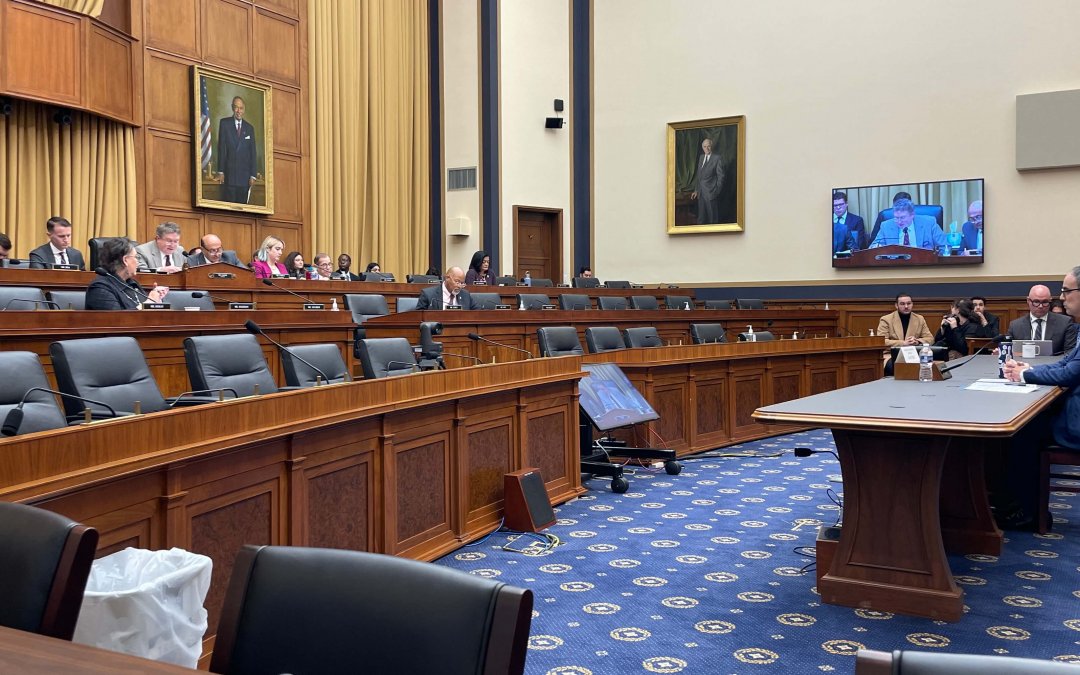WASHINGTON – Legislators from both sides of the aisle told Assistant Attorney General Jonathan Kanter on Tuesday that they have concerns over the Department of Justice’s draft merger guidelines.
“We need to make sure that no intended consequences are actually created, and more importantly, you don’t hurt American jobs,” Rep. Lou Correa (D-Calif.), ranking member of the House Judiciary antitrust subcommittee, told Kanter.
In July, the DOJ and the Federal Trade Commission, which are both responsible for reviewing business deals, jointly announced a set of proposed changes to the federal rules governing mergers and acquisitions. The new rules would lower the threshold for a merger to be considered a risk to competition. For instance, the agencies will assume a merger to be harmful if one of the merging firms has a 30 percent or higher market share – a notable addition to the guidelines on mergers of actual or potential competitors published in 2010.
The regulators also introduced changes to the Premerger Notification and Report Form. The updated form will require companies to disclose more documents and business data, allowing more rigorous scrutiny of mergers.
Citing former Treasury Secretary Larry Summers, who called the updated merger and acquisition rules a “declaration of war on businesses,” Correa cautioned against the DOJ unintentionally harming competition and consumers in pursuing its antitrust mission.
Rep. Thomas Massie (R-Ky.), the chair of the antitrust subcommittee, echoed Correa’s concerns. He said the new guidelines “raised questions” about whether the DOJ is revising its legal tools to pursue policy goals outside of consumer protection.
Kanter, who heads DOJ’s antitrust division, defended his department’s efforts. The competitive market has changed significantly since the merger rules were last updated, and the proposals aim to “better reflect the law and to address the reality of our modern economy,” he said.
Addressing questions from Reps. Scott Fitzgerald (R-Wis.) and Lucy McBath (D-Ga.), Kanter said the DOJ is first and foremost a law enforcement agency, and its guidelines are rooted in existing legislation and lawsuits. The updated guidelines will, for the first time, integrate Supreme Court decisions regarding antitrust liability.
He noted, however, that the process of updating the guidelines is still ongoing, and the language could change. DOJ is coordinating with federal regulators from other agencies and reviewing the “tens of thousands” of public comments on the draft guidelines. He added that the comments “overwhelmingly” support the draft.
Separately, Democrats on the subcommittee also advocated for a larger budget to fund more staff at the Justice Department’s antitrust division, in a signal of support for its work.
Speaking with reporters after the hearing, Kanter declined to provide more information on when the department expects to release the final rules.
Despite their concerns over the new guidelines and pre-merger notification system, the lawmakers applauded the antitrust division’s recent litigation against mergers and anticompetitive business practices.
In March, the DOJ sued to block JetBlue’s merger with Spirit Airlines. The department contended that the deal would lead to higher airfare and fewer flights, harming travelers. But attorneys for the airlines argued that a merger was the only way for the two companies to remain viable and competitive.
Although Kanter declined to comment on ongoing litigation during the hearing, he said his department makes determinations based on a wide range of factors, including financial viability. The department also has a narrow focus on enforcing existing antitrust laws compared to other federal regulatory agencies, he added.
A federal judge will also soon decide the outcome of the DOJ’s antitrust suit against Google. The suit alleges that Google has illegally maintained a monopoly in the online search market, stymied competition through restrictive contracts with other tech companies, and harmed consumers and advertisers. The trial opened in September in the U.S. District Court for the District of Columbia, and a decision is expected early next year.
The enforcement actions against Google were not the only technology issue the antitrust division has taken up. In October, President Joe Biden announced his long-anticipated executive order on artificial intelligence. In it, he calls for federal agencies to promote competition in the marketplace of AI technologies.
FTC Chair Lina Khan, who was not called to testify on Tuesday, has publicly embraced the mission to police AI companies for monopolistic business practices. Kanter told lawmakers that his department was also actively studying the AI market, especially regarding how large-scale data collection and aggregation, a key part of training AI models, can tip the market or be a barrier to entry.
“We are focused on making sure that we are preserving the many wonderful opportunities that can flow from new innovations and new technologies so that the marketplace has the opportunity to spread the benefit around to the public,” Kanter said.
Published in conjunction with UPI.


